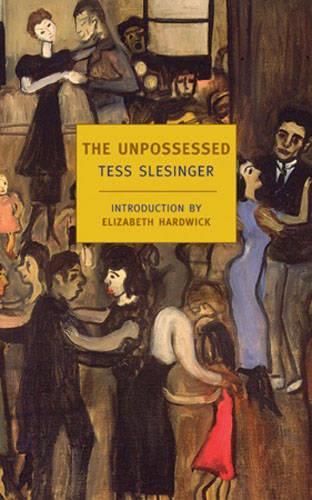
The Unpossessed
(Paperback, Main)
Publishing Details
The Unpossessed
By (Author) Tess Slesinger
New York Review Books
NYRB Classics
15th September 2005
Main
United States
Classifications
General
Fiction
813.52
Physical Properties
Paperback
328
Width 125mm, Height 200mm, Spine 22mm
345g
Description
Tess Slesinger's 1934 novel, The Unpossessed details the ins and outs and ups and downs of left-wing New York intellectual life and features a cast of litterateurs, layabouts, lotharios, academic activists, and fur-clad patrons of protest and the arts. This cutting comedy about hard times, bad jobs, lousy marriages, little magazines, high principles, and the morning after bears comparison with the best work of Dawn Powell and Mary McCarthy.
Reviews
"Unlike so many other thirties novels,The Unpossessedtreats the topical themes of its age as subsets of a much larger, more abiding theme in literature: the folly of all human (and particularly of pompous intellectual) endeavor that aims at imposing a rational direction on something as incorrigibly messy as history. Slesingers noteperfect depiction of this folly givesThe Unpossessedits irresistible narrative energy."The Atlantic Monthly
"Its sophisticatedfull of cutting observations and overeager images; satiric, then ecstatic, alternating social criticism with displays of sexual and intellectual coquetry."The Village Voice
"The farceor is it the tragedyof New York leftist intellectuals done in by free love is gleefully taken up inThe Unpossessed"Publishers Weekly
"Miss Slesingers radicalism had somewhat the flavor of Dorothy Parkers; it was disabused, worldly, and tended to view social man as a collection of hollow, wordy grotesques. Thus the class war is transformed in her novel very largely into a war of the sexes." Robert Adams,The New York Review of Books
Author Bio
Tess Slesinger (1905-1945) grew up in New York. She married Herbert Solow, editor of the Menorah Journal, through whom she became acquainted with the leading young, leftist intellectuals of the time, including Lionel Trilling and Clifton Fadiman. In addition to The Unpossessed, her only published novel, Slesinger's writing credits include one book of short stories, Time: the Present, and several screenplays, including The Good Earth and A Tree Grows in Brooklyn.
